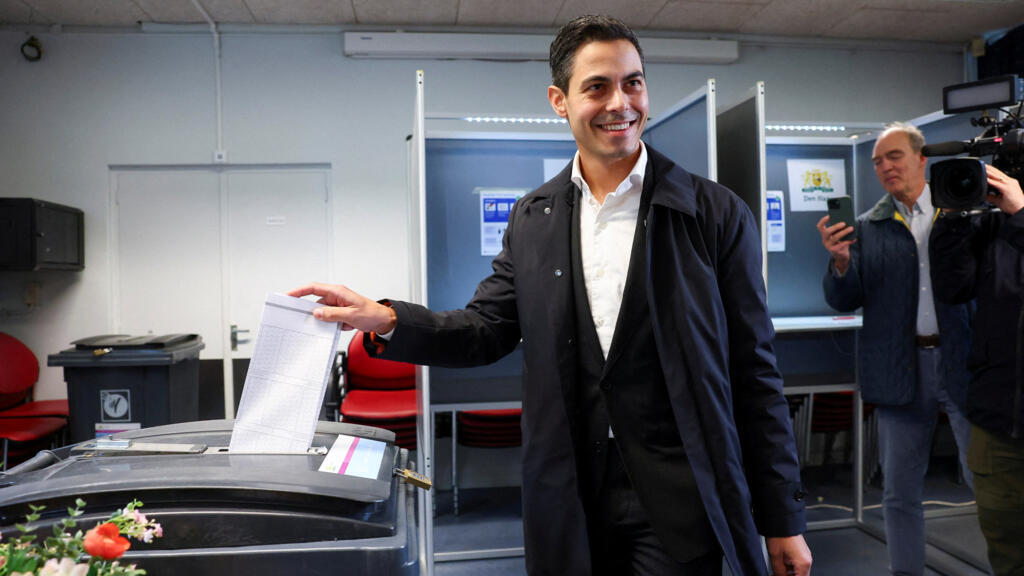On Wednesday, exit polls in the Netherlands indicated that the centrist D66 party is likely to secure the most votes in the recent national election. Should these preliminary results be confirmed, it could pave the way for Rob Jetten, the leader of D66, to become the youngest prime minister in Dutch history. This potential outcome would signify a substantial setback for Geert Wilders, the leader of the far-right political faction.
The electoral landscape in the Netherlands has been characterized by a broad spectrum of political parties, reflecting diverse ideologies and social perspectives. In the lead-up to the national election, issues such as climate change, immigration, and economic reform were at the forefront of voters' concerns. Jetten's D66 party has campaigned on a progressive platform, emphasizing sustainability and social justice, which appears to have resonated with a significant portion of the electorate.
Rob Jetten, who has emerged as a prominent figure in Dutch politics, represents a generational shift within the political framework. His leadership, if confirmed by the final vote counts, not only showcases the appeal of centrism amidst rising far-right sentiments but also highlights a growing trend among voters favoring youthful, dynamic leadership. The potential for a younger prime minister could attract a new demographic of voters, particularly the youth, who may feel more represented by Jetten’s vision for the future.
Conversely, Geert Wilders and his party have faced increasing scrutiny over their hardline policies on immigration and nationalism. As the election results unfold, it becomes evident that Wilders' approach may not have gained the same traction as in previous electoral cycles. This shift could indicate a growing dissatisfaction among voters with far-right rhetoric, leading to a consolidation of support for more moderate parties like D66.
The significance of this election extends beyond the immediate political implications, as it also reflects broader trends in European politics. The rise of centrist parties can be seen as a reaction to extreme political polarization that has affected many democracies across the continent. As countries grapple with issues such as economic uncertainty and social cohesion, the preference for moderate policies may become increasingly pronounced in future elections.
In addition to Jetten's potential premiership, the election results will likely impact coalition-building efforts in the Dutch parliament. If D66 emerges as the largest party, it will be positioned to lead coalition negotiations with other parties, playing a crucial role in forming a stable government that can address pressing national issues. The dynamics of coalition politics in the Netherlands are complex, often requiring parties to compromise and collaborate across the political spectrum.
The reactions from the electorate, political analysts, and global observers will be closely monitored as the final counting progresses. The implications of this election may also resonate beyond the Netherlands, influencing political debates in other European nations where similar trends of nationalism and populism are being challenged by moderate and progressive movements.
Overall, the preliminary exit poll results reflect a significant moment in Dutch politics, with potential ramifications for domestic policy and international relations. As Rob Jetten aims for the prime ministership, the story of this election will continue to unfold in the days to come, with much anticipation surrounding the official results and subsequent political developments.
```










